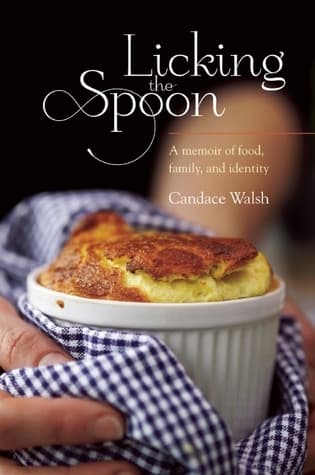
Book Review Summary: Licking the Spoon: A Memoir of Food, Family, and Identity
Introduction
"Licking the Spoon: A Memoir of Food, Family, and Identity" by Candace Walsh is a captivating memoir that explores the author's journey of self-discovery through food, family, and identity. Walsh shares her personal experiences, struggles, and triumphs in a way that resonates with readers. In this article, we will delve into the book's main points, analyze common opinions, and summarize reasons for recommending or not recommending it.
About Candace Walsh
Candace Walsh is the author of "Licking the Spoon: A Memoir of Food, Family, and Identity." She is a talented writer and editor, known for her work in various publications. With her memoir, Walsh shares her personal story and invites readers to join her on a journey of self-exploration.
Analysis of Views
-
Food as a Vehicle for Narrative: Many readers appreciate how Walsh uses food as a narrative device to explore her personal experiences. The inclusion of recipes and culinary references adds depth and sensory description to the story, making it more engaging and relatable.
-
Emotional Resonance: The book resonates with readers on an emotional level. Walsh's honest portrayal of her struggles, epiphanies, and personal growth evokes a range of emotions. Readers find themselves empathizing with the author and connecting with her journey.
-
Relatability: Walsh's storytelling is relatable to many readers. She shares universal experiences of love, heartbreak, family dynamics, and finding one's place in the world. Her writing style is engaging and entertaining, making it easy for readers to immerse themselves in her journey.
-
Vulnerability: Walsh's vulnerability in sharing her personal experiences is commended by readers. She doesn't shy away from discussing difficult topics or revealing personal details, making her story authentic and genuine. This vulnerability creates a strong connection with readers and adds depth to the memoir.
-
Candid Account: Readers appreciate the candid nature of Walsh's account of her life. She doesn't sugarcoat or sanitize her experiences, presenting them in their raw form. This authenticity adds credibility to her story and makes it more compelling.
Reasons for Recommendation
-
Engaging Storytelling: Walsh's engaging storytelling style captivates readers from the beginning to end. Her ability to weave personal experiences with food and culinary references creates a unique reading experience that is both entertaining and thought-provoking.
-
Emotional Resonance: The emotional resonance of the book is a significant reason for recommending it. Readers connect with Walsh's journey and find themselves emotionally invested in her story. The book leaves a lasting impact on readers, making it a memorable read.
-
Relatability: The relatability of Walsh's experiences makes the book accessible to a wide audience. Readers find parallels in their own lives and appreciate the universal themes explored in the memoir. This relatability enhances the reader's connection to the story and adds depth to their reading experience.
Reasons for Not Recommendation
-
Lack of Neat Conclusion: Some readers feel that the book lacks a neat conclusion or resolution. They find it frustrating that certain aspects of the story remain open-ended or unresolved. This lack of closure can detract from the overall reading experience for some readers.
-
Emotional Density: A few readers find the emotional density of the book overwhelming at times. They may feel emotionally drained after reading about the challenges and struggles faced by the author. This emotional intensity may not be suitable for readers who prefer lighter or more uplifting reads.
Conclusion
"Licking the Spoon: A Memoir of Food, Family, and Identity" by Candace Walsh is a thought-provoking memoir that explores the author's journey of self-discovery through food, family, and identity. With its engaging storytelling, emotional resonance, relatability, and candid account of personal experiences, the book has garnered praise from readers. However, some readers may find the lack of a neat conclusion or the emotional density of the book as reasons for not recommending it. Overall, "Licking the Spoon" offers a unique reading experience that invites readers to explore their own lives while savoring the delicious recipes and culinary references woven throughout the narrative.